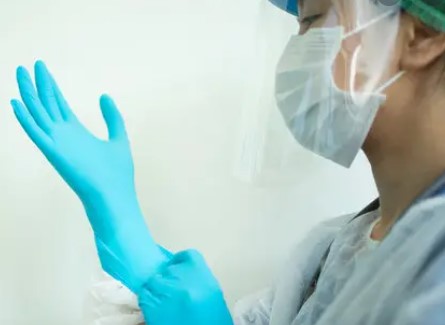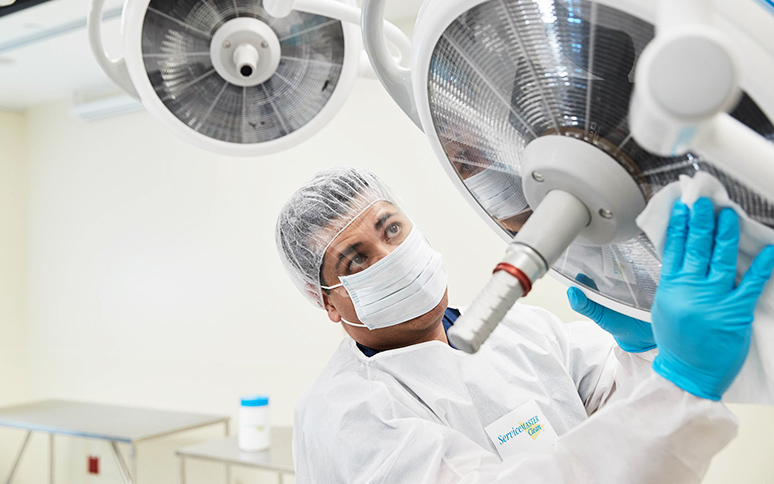Essential PPE in Healthcare Rooms
Personal protective equipment (PPE) are all the items required to keep healthcare workers protected against hospital hazards, infectious diseases, bloodborne pathogens, and other on-the-job dangers. According to the U.S. Food & Drug Administration (FDA), PPE like masks and gloves should act as a barrier between contaminants and the employee's skin, mouth, eyes, or nose, potentially blocking the transmission of harmful contaminants.
Although every facility may require additional PPE, there are basic items that every healthcare room must have in order to protect staff. Find out what the PPE requirements are with these helpful tips from ServiceMaster Clean.
Essential PPE for Every Healthcare Facility
While keeping hazards out of a healthcare facility may not be entirely possible, the correct use of PPE equipment can go a long way in reducing healthcare workers' risk of injury or illness. PPE can help protect against the following contaminants:
Blood
Skin tissues
Mucus
Respiratory droplets transmitted by coughing, sneezing, or exhaling
Vector-borne transmissions, meaning that a person's skin is penetrated by an infectious source
Bodily fluids
Infections
Chemical hazards
Every healthcare room should be stocked with the correct personal protective equipment. Healthcare employers should also train staff about the situations in which wearing PPE is absolutely necessary, as well as the proper ways to use and discard each piece of equipment. The minimum required PPE for each healthcare facility includes:
Foot protection
Eye protection
Gloves
Masks
Lab coats
Disposable gowns
Respirators
PPE Requirements for Employers
According to the Occupational Safety and Health Administration (OSHA), employers are responsible for providing the necessary PPE to all staff members. When it comes to PPE, OSHA requires employers to also do the following:
Replace worn or damaged gear quickly
Regularly clean and maintain non-disposable PPE
Periodically evaluate the effectiveness of the PPE program and make necessary updates
Provide training on the proper use and care of PPE
PPE Requirements for Specific Healthcare Facilities
OSHA requires every healthcare facility to keep certain personal protective equipment such as gloves, masks, goggles, lab coats, foot coverings, and respirators in stock. Depending on the services your healthcare facility offers, you may be required to meet more than the minimum PPE standards that are required by the organization. For example, employees who handle radiation equipment should wear specialized protective gear such as lead aprons, lead gloves, opaque goggles, a pocket dosimeter, and a film badge. Use OSHA's PPE guide to determine which items you should always have available, depending on the type of services your facility provides.
For More Protection Against Workplace Hazards, Call ServiceMaster Clean
Becoming familiar with and following OSHA's personal protective equipment regulations can serve to reduce exposure to pathogens and infectious diseases. Call the experts at ServiceMaster Clean to help protect patients from healthcare-associated infections, reduce the risk of exposure to your staff, and improve the overall environment of your facility. Our janitorial services for healthcare have been created with best practices and procedures from the leading industry organizations to ensure a proper clean in any healthcare environment. Call us today to create a comprehensive cleaning program that's catered to your specific needs.








